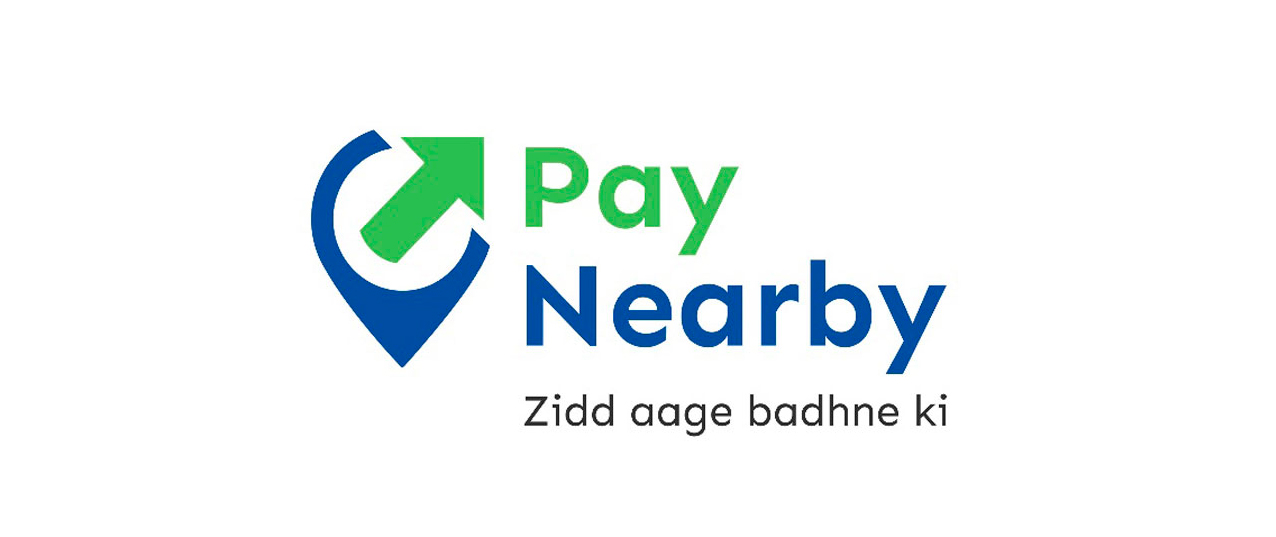Published
- 01:00 am

Regulatory technology or regtech is starting to play a crucial role in ensuring digital transformation projects are not only successful, but fully compliant too.
Andrea Tucker, Head of Research & Development and Strategic Projects at e4, notes that while regtech, defined as the management of regulatory processes within the financial industry through technology, is relatively new it looks set to make a significant impact on how financial institutions tackle digital transformation.
“At its simplest, regtech makes the process of complying with regulations like FICA, POPIA, and the like completely seamless. A practical example of the power of regtech in action is e4’s role in enabling a fully digital credit card application process for a major South African bank within just four months,” says Tucker.
Regtech is proving to be critical in mainstream banking as these organisations accelerate their digital transformation journeys thanks to the convergence of renewed consumer demand for paperless services and the Covid-19 pandemic making the virtual switch a clear necessity. “Regulations, consumer trends, and technology are constantly evolving which makes for a truly dynamic environment for the banking and financial services industries. It’s also an environment which requires continuous attention to change and how new regulations, particularly those concerning digital interactions with end consumers, affect organisations and their compliance requirements,” adds Tucker.
She says regtech ensures that the onboarding process can be entirely virtual while still meeting organisational rules and standards together with wider legal requirements. “Another important benefit of regtech is that it makes it possible for interactions with organisations to become far more cost effective, more streamlined, and less onerous for the end consumer.”
In addition to streamlining any consumer facing process that also needs to be reported on, Tucker says regtech can give organisations an edge in several other ways too. “Not only are shifting demographics moving towards frictionless exchanges, both small and large financial services organisations can benefit from implementing regtech as it frees skilled staff from tedious manual paperwork to work on more fulfilling tasks.”
For organisations who haven’t yet considered regtech as part of their wider digital transformation journey, Tucker recommends starting off by getting a good handle on existing business rules and processes. “A full understanding of all internal procedures is the foundation on which wider compliance and meaningful digital transformation is built.”
Related News
- 01:00 am

New data from Barclaycard Payments, which processes almost £1 in every £3 spent in the UK, reveals how Monday’s lockdown relaxation has impacted the UK hospitality sector.
Hospitality venues are already feeling the benefits of being able to reopen indoors, with revenues rising across the sector by 43 per cent since Monday, as consumers flock to fill the increased capacity. The value of transactions processed at pubs and bars is up 162 per cent compared to the same period last week, and restaurants are seeing similar growth, with transaction values up 58 per cent.
The picture is even more positive when you focus on face-to-face transactions – in-store revenues are up 171 per cent for pubs and bars, and up 95 per cent for restaurants.
The pent-up demand for eating and drinking indoors, especially given the chilly weather seen over much of the past month, has even caused the hospitality sector to rise above pre-pandemic levels, with the total amount spent up 8.6 per cent compared to the same period in 2019.
Even with the increased capacity, the demand for tables is likely to exceed supply: the recent Barclaycard Payments SME Barometer* revealed that the majority of hospitality and leisure businesses that take bookings expect that customers will need to book at least five days in advance to secure a reservation this summer. In preparation, SMEs have invested an average of £5,551 to become covid-secure for their reopening.
Rob Cameron, CEO of Barclaycard Payments, said: “The re-opening of indoor hospitality venues has brought the welcome sound of ringing tills to restaurants, pubs and bars across the country. I’m delighted to see that transaction values have even risen above 2019 levels, thanks to our pent-up demand for going out to spend time with friends and family.”
Related News
- 09:00 am

As part of its Shop Owners Benefit Program, PayNearby, India’s leading branchless banking and digital payments network, has tied up with Centrum Microcredit Limited, the micro finance arm of the Centrum Group, to facilitate unsecured business loans to its retail partners. As part of the tie-up, loan requirements will be sourced through PayNearby’s vast network of retailers and will be disbursed by Centrum Microcredit Limited. The solution is aimed at fortifying and driving the business growth of PayNearby’s retail partners, especially in these challenging times where businesses are struggling to stay afloat due to the economic fallout of COVID 19.
The partnership will work towards enhancing the shared goals of the two organizations, which are committed to enabling financial inclusiveness and the economic wellbeing of the retailers. Retailers often need timely and small-ticket working capital loans for short tenures to keep their businesses up and running. More often than not, due to lack of collaterals or being new-to-credit, these retailers predominantly rely on alternative options such as local moneylenders or loan sharks instead of mainstream options such as Banks or Financial Institutions. But, loans from these informal sources come at exorbitantly high interest rates, pushing them further into an inevitable vicious cycle.
This partnership will allow PayNearby to facilitate competitive lending solutions to its retailers who otherwise may not be eligible for formal lending options. PayNearby is determined to ensure that the Digital Pradhans do not face a cash crunch of any kind and continue to offer their services, thus creating a thriving ecosystem for the local community.
The partnership will help Centrum harness PayNearby’s rich data acquired through processing billions of transactions per day, adding scale and efficiency to their lending business. PayNearby has an innovative and robust technology backend platform that reaches out to the deep roots of the country using advanced analytics, AI and machine learning to score thin credit files and create simple and efficient micro lending experiences for its retailers, enabling them to secure loans at the click of a button. The loans disbursed to the merchants will be on a pre-qualified basis. To enable this, PayNearby has developed a proprietary scorecard based on the transaction data of the retailers along with a set of agreed pre-qualifying criteria of Centrum; and a credit rule engine based on which eligible retailers are shortlisted.
The partnership will give Centrum access to a deeply entrenched retailer network, with rich transactional data and hassle-free access to last-mile through PayNearby’s stable tech platform. With big data available at PayNearby and the strength of an on-ground distribution network, Centrum will provide the retailers with the right lending solutions to meet their growth and sustenance needs.
Additionally, this partnership, between Pay Nearby and Centrum Microcredit, has followed a digital-first strategy in its entire product journey. It is currently funding small-ticket, unsecured loans between ₹25,000 to ₹ 1 lakh with tenure ranging from 6 months to 24 months. The turn-around time is 48 hours even for the new-to-credit and the entire life cycle of the loan starting from origination to disbursement is completely digital. Along with the convenience of applying for a loan, the partnership will ensure that retailers build a strong credit history in this journey and at a certain stage become eligible to take bigger and longer duration loans from banks.
Announcing the tie-up, Anand Kumar Bajaj, Founder, MD & CEO, PayNearby said, “PayNearby as an entity has been championing the cause of financial inclusion in the country. However, the objective of financial inclusion is incomplete until our retailers get access to credit. We have given our retailers access to livelihood, access to insurance and access to savings with various products in the financial services spectrum. The only missing piece was access to credit. In our endeavour to making credit available to our retailers at affordable interest rates, we have partnered with Centrum Microcredit Limited. Along with PayNearby’s substantial data, together with Centrum, we are hopeful of addressing the issue of working capital credit for our retailers through these micro-enterprise loans.
Our Digital Pradhans are our backbone. They have shown great resilience throughout the pandemic by providing uninterrupted service to ensure citizens have access to essential financial resources. In these dire times, we are committed to fortify them in spirit and with financial backing to ensure their businesses function smoothly as ever.”
Speaking on the partnership, Prashant Thakker, Executive Director & CEO, Centrum Microcredit Limited said, “Financial inclusion is a key focus area for us. Our partnership with PayNearby adds to our vision of making a positive, social and economic impact in the lives of retailers by providing unsecured working capital credit to ensure their business functions uninterruptedly. With this initiative, we will be able to bring many small retailers into the mainstream credit fold. This will also help us to diversify our operations geographically and expand our offering in terms of tenure and repayment model of loans. We are excited to call on PayNearby’s rich data and massive retailer network to fulfill the dream of a financially inclusive India.”
Within six weeks of the launch, the company has received over 270 applications on its platform and has disbursed loans worth ₹36 lakhs to more than 60 retailers.
Related News
- 07:00 am

Banking technology platform provider BankiFi, in association with The Co-operative Bank, has launched a new Request to Pay (RTP) service: Incomeing. The service helps SMEs boost their cash flow by facilitating instant, cost-effective and secure collection of payments from their customers. The Co-operative Bank is the first UK provider to offer an open Request to Pay mobile application for not only its customers but also those that bank elsewhere.
Many micro and small businesses suffer as a result of high transaction fees, delayed or late payments, complex financial admin tasks and cash-flow disruption. According to research from the Federation of Small Businesses1, 30% of all payments to SMEs are late, at an average value of £6,142. Cognizant of the urgency around late payments the UK government recently announced an overhaul of the Prompt Payment Code (PPC), cutting the payment term in half to within 30 days. Further, McKinsey2 estimate that around 74% of an SME’s time is spent on ‘non-core activities’, including time-consuming administrative tasks.
With the UK home to approximately 5.5 million micro business owners3, the RTP service is designed to provide them with greater choice, control and a flexible technology that is a more cost-effective alternative than cash, direct debits or high-fee card transactions.
The platform allows users to send secure, real-time payment requests via text, email and Whatsapp, as well as QR codes for simple face-to-face transactions. It ensures that funds are transferred into a chosen account immediately, boosting cash flow. It also generates invoices, streamlines the process of chasing late payments and automates financial admin by integrating with all the major accounting applications.
The Co-operative Bank is the first to offer the platform to its micro and small business customers, but the app is available to customers of any UK bank.
Stephen O’Keane, Head of Customer Transformation at The Co-operative Bank comments: “Small and micro businesses have worked incredibly hard to stay afloat this year. Even before the pandemic, the pressures of late payments and impact to cash flow was an issue many SMEs were trying to manage. In association with Incomeing, The Co-operative Bank wants to help close this gap, not just to support our customers, but go beyond that and support all SMEs with an effective solution. The benefit of Incomeing is it’s a simpler but secure way of handling payments that we believe will help many businesses sustain and grow even in these challenging times.”
Mark Hartley, Founder and CEO of BankiFi, comments: “Incomeing is ultimately here to support the businesses that represent the backbone of the UK economy. SMEs typically wait longer to get paid than bigger businesses, with late payments and time spent on burdensome financial admin placing immense pressure on their survival. Being an SME ourselves, we wanted to create a service that helped business owners simplify collecting money from their customers, automate invoicing and bookkeeping, and to receive the money directly into their account - all through a mobile experience that reflects how they operate.”
Incomeing is also available as a white-labelled solution, meaning any organisation with an SME client base can leverage the app to offer a licensed digital payments and collection service. Users are able to register using their Business Current Account, or a Personal Current Account as data shows a large portion of micro businesses run their finances through a Personal Current account.
Hartley continues: “Beyond banking to us means embedding banking into the heart of a business and as such we also make it available as a service so enterprises, such as insurers, banks and telcos, or any (membership) organisation targeting a particular segment. They were previously unable to offer payment solutions but can now do so without needing to get their own regulatory clearance. As the technology and integrations are already in place, we’re giving enterprises in the UK and Ireland access to a more cost-effective solution with payments embedded into the overall experience that has a rapid time to market.”
Related News
- 08:00 am

Uncapped, a London-based startup changing the way online companies fund their growth and inventory costs, has today raised $80 million of debt and equity in a new funding round that will enable the company to move beyond lending by launching a suite of new banking services tailored to the needs of digital entrepreneurs.
Founded in 2019, Uncapped has sprung to popularity as an alternative to traditional debt financing and venture capital. The company provides founders with growth finance for a flat fee as low as 6%, and capital can be released in as little as a day. Businesses only repay the capital as they make revenue with no set repayment and no compounding interest, equity or personal guarantees, and there are no credit checks or business plans required.
With the latest capital injection, Uncapped plans to move deeper in the banking space, with a host of new products and services due to launch in the near future. The company is specifically looking to solve problems around financial visibility, access to cash flow, access to third-party data, as well as an expansion of their range of credit products. Last year, the company began issuing Visa cards to enable founders to spend their capital, and the company intends to expand on this offering.
Piotr Pisarz, Co-Founder of Uncapped, said: “Digital companies are innovating and evolving faster than ever before, but their legacy banking providers are not keeping up with the pace. We want to help digital entrepreneurs with quick access to funding, insights that help their business grow, rewards they actually care about, and modern integrations that will save them time and money.”
Asher Ismail, Co-Founder of Uncapped, said: “The reality is that legacy banks don’t really understand the needs of digital entrepreneurs, and their dated infrastructure is not up to the standards required to help their business grow. So it’s no surprise that 82% of business owners say they are unhappy with their bank. This is a huge problem and, as digital entrepreneurs ourselves, we’re best placed to solve it.”
Nicolas Brand, Partner at Lakestar, said: “The composition of our economies is changing, with digital native businesses contributing an ever increasing share to overall GDP. Uncapped uses real time data provided by its clients across APIs to offer bespoke credit and other novel banking services. We are proud to be partnering with Piotr and Asher on their journey to change how funding and banking in a digital economy works.”
The company will also use the capital to increase its headcount from 35 to 100 people by the end of the year, with a particular focus on engineering and product roles. While the company operates on a fully remote basis, most employees are situated in the UK, Germany and Poland.
Related News
- 04:00 am

Frankfurt-based Blocksize Capital, a leading blockchain technology provider for financial institutions, has become the latest fintech to join Avaloq’s open banking marketplace.
The Avaloq.one ecosystem connects up-and-coming fintechs and their solutions with Avaloq’s global client base, consisting of more than 150 established financial institutions. Around 100 fintechs, offering more than 130 digital banking solutions are currently active in Avaloq’s growing open banking marketplace which was launched in 2019.
With Blocksize Capital being part of the Avaloq.one ecosystem now, the German fintech’s cutting-edge blockchain technology is easily accessible to banks and wealth managers which are looking to efficiently and securely manage and trade digital assets. Blocksize Capital’s innovative Software as a Service (SaaS) solution offers a flexible and transaction-based subscription model, reducing initial implementation costs for new clients. An open API architecture enables a seamless connection and integration of the SaaS offering with existing technology infrastructures at financial institutions, allowing for a smooth integration process.
Avaloq has been spearheading the implementation of blockchain technology in the banking and wealth management industry over the past years in close collaboration with its partners and clients. It was recently announced that a Swiss bank had successfully started to use Avaloq’s Crypto Assets solution to trade in Bitcoin for its clients. The bank has received the regulatory approval from FINMA, the Swiss Financial Market Supervisory Authority, to provide bank accounts in crypto currencies for institutional and corporate clients.
Christoph Impekoven, Managing Director at Blocksize Capital, said: “We firmly believe that in the near future all asset classes will be available on DLT (distributed ledger technology) systems, also known as blockchain technology. Blocksize Capital provides financial institutions with cutting-edge technology allowing them to embrace this fundamental transformation. Our solutions are based on enterprise-grade terminals enabling investors to analyse, trade and manage digital assets. Thanks to strong partnerships, such as this one with Avaloq, we are able to share our profound DLT expertise with banks and wealth managers around the world.”
Martin Greweldinger, Co-CEO and Group Chief Product Officer at Avaloq, said: “We are delighted to welcome Blocksize Capital to the Avaloq.one ecosystem. Blocksize Capital’s digital assets solutions are a great addition to Avaloq’s stand-alone Crypto Assets platform which is designed to provide financial institutions with a comprehensive, convenient and flexible solution for crypto investing.”
Related News
- 01:00 am

IDnow, a German-based leader in platform-as-a-service identity verification, today announced the implementation of NFC reading capability into IDnow AutoIdent. This will offer users an even smoother and quicker verification process.
The new solution will support all identification documents globally that follow the ICAO 9303 standard like ePassports and NFC supported ID cards. All the user needs are an ID card with a RFID chip (radio-frequency identification) as well as an NFC-enabled smartphone. The IDnow App recognizes the availability of an RFID chip, reads the personal data and biometric information (photo) that is contained on the chip with integrated privacy protection and compares the biometric information retrieved from the chip to a video selfie and a liveness check.
IDnow has seen that users increasingly value quick and easy identification and appreciate the freedom of choice when selecting their identification method. Different user groups prefer different methods, and businesses can see large increases in their conversion rates if they offer users a choice. Therefore, IDnow offers a comprehensive platform, that includes identification methods from offline to online, from automated methods to procedures carried out by identity specialists, available flexibly online, offline in branches and even by a courier at the user’s doorstep.
“The NFC capability for our AutoIdent product is a significant step in order to further augment our platform and create a smooth user journey for everyone. Our customers value this freedom of choice for their user and see high conversion rates with seamless, easy processes”, says Vikas Seth, CPO at IDnow. “Through the application of NFC-based RFID chip read out in the IDnow AutoIdent product, you don’t need to compromise, but get the best of both worlds - a high level of security and a convenient onboarding process at high speed”, he adds.
The principle of reading out an ePassport via NFC is successfully used by airports with ePassport gates, places with an extremely high security requirements. By adding this feature to IDnow AutoIdent, IDnow is empowering banks, insurance providers and other businesses to get the same level of protection from fraudsters and identity thieves through a method, that is already well established and understood by their end users, completely automated and built to improve conversion rates.
For high security use cases IDnow is also offering a variant that can check the authenticity of the RFID chip and validate it on a secure server with digital certificates to ensure that the RFID chip itself is not compromised by fraudsters.
IDnow has expanded its role in recent years far beyond simply offering individual ident methods and has become the overarching platform for digital identities with several million transactions per year. In early 2021, IDnow announced the acquisition of identity Trust Management AG, one of the leading international providers for on- and offline verification. This was the second acquisition within six months for IDnow and represents an important milestone on the way to becoming the leading identity platform in Europe. The acquisition of identity Trust Management AG enables IDnow to expand into new industries and offer its services to a broader customer base in Germany and beyond.
Related News
- 04:00 am

Phoebus Software Limited (PSL) has selected Six Degrees as the latest provider within the PSL Partnership Programme. Six Degrees is a Microsoft Azure Expert Managed Services Provider that will strengthen PSL’s cloud capabilities and accelerate the provision of cloud native infrastructure to support PSL’s software applications. The partnership will increase PSL’s software application resilience and security, as well as improving performance and the overall client experience.
An important factor in PSL’s selection of a new partner in this business-critical area was a best practice approach to security to ensure all data is secure and protected. Six Degrees’ optimisation of the cloud ensures that PSL’s clients will continually receive the best possible user experience.
Six Degrees is a leading secure cloud provider, with more than 15 years of experience serving 2,000 plus customers across a broad range of industries including financial services, retail, manufacturing, legal and public sector. It has a strong track record of working with software vendors to move their operations to the cloud, and this – combined with the company’s experience in the financial services sector – made Six Degrees a natural partner for PSL.
Warren Higgins, Chief Information Officer at Phoebus Software Ltd says: “Our partnership with Six Degrees will underpin our cloud strategy. This will enable the extension of our cloud capabilities to provide further security, performance and resilience for our platform and products. With our client base being at the heart of banking and account servicing, their credibility in the sector in which we work will provide combined benefits to all.”
Simon Crawley-Trice, CEO at Six Degrees comments: “At Six Degrees we are fast becoming the secure cloud services partner of choice for software providers. As one of only eight UK Azure Expert MSPs we really do live and breathe secure cloud, and we are proud to work with PSL, a leading solutions provider to the finance sector. By leveraging our exceptional cloud advisory and management capabilities, PSL will be able to elevate its solutions and ensure its ongoing success.”
Related News
- 07:00 am

Gala Technology, the innovative development team behind the global, cloud-based, secure and PCI DSS compliant payment solution, SOTpay, are celebrating yet more industry accolades, as they scooped a double award win at the prestigious American, CNP 2021 awards.
The Covid-19 pandemic and the stay-at-home restrictions that followed in virtually every country around the globe fundamentally altered the environment faced by CNP (Card Not Present) merchants and the companies that provide technology and services to them. While online verticals like travel & hospitality and event ticketing almost instantly lost all their transaction volume and were crushed by chargebacks stemming from cancelled trips and events, other verticals like online grocery and food delivery instantly boomed, providing ample opportunity for fraudsters to take advantage of huge volumes. Innumerable merchants found themselves setting up online operations for the first time out of a sense of opportunity or survival—many of them unprepared for payments and fraud issues that inevitably come with e-commerce and telephony payments.
Into this breach stepped Gala Technology and the Yorkshire based technology organisation were rightly recognised as the ‘Best International CNP Program 2021’ crown was awarded in both the judges (determined by a panel of independent merchant and consultant judges) and customer categories (determined by an online vote of users).
The awards were in recognition that SOTpay ‘most effectively meets the specific needs of merchants that accept CNP payments.’ by enabling them to process secure transactions via telephony, web chat and social media platforms in a PCI DSS compliant manner, throughout the global pandemic.
SOTpay eliminates the risk of fraud related chargebacks for businesses, by authenticating telephony and Omni-channel, Card Not Present transactions and processing the payment in a PCI compliant manner. The cloud-based technology does not require any additional hardware or amendments to existing telephony infrastructure, and is acquirer and payment gateway agnostic, completely negating the need for capital expenditure, thus making it affordable for merchants of all shapes and sizes.
Jason Mace, Chairman of Gala Technology stated ‘We are thrilled to receive this prestigious double international award, especially given the calibre of previous winners, who include the likes of Barclays. Receiving such recognition from industry expert judges is one thing, but knowing that our clients and strategic partners have played a crucial role in the decision making, is especially pleasing.
It is the third successive year that our customers have voted for us in numbers. This demonstrates that not only do we supply essential security and functionality for merchants accepting CNP payments it also highlights our outstanding customer service and relationship management, which was needed more than ever throughout a global crisis.’
Other winners on the night including Microsoft who were chosen as ‘Best Antifraud Solution - Mobile Solution’ in the Customers Choice category, FIS who won ‘Best Subscription / Recurring Billing Solution’ and Elavon who were selected by the judges as ‘Best Processor’
Related News
- 07:00 am

Asia Alliance Bank, multi-awards winning bank – recently awarded “The Best Bank for SMEs in Uzbekistan” by Asiamoney, and one of the leading banks in Uzbekistan, has selected ICS BANKS Islamic Banking software solutions from ICS Financial Systems (ICSFS), the global software and services provider for banks and financial institutions, with the collaboration of the Islamic Corporation for the Development of the Private Sector (ICD).
Chairman of the Management Board of Trustbank; Sardor Normukhamedov commented: “As one of the leading banks of the Republic of Uzbekistan, it is our privilege to be the first in adding Islamic Banking products to our services. We strive for becoming the best in providing high quality modern banking services as well Islamic banking services in the Uzbek’s banking sector, and with this new joint milestone with ICSFS and ICD – which is the very first of its kind, we are creating history!” |
| Chairman of the Management Board of Asia Alliance Bank, Mr. Ikram Abdukakhorov commented: “Being one of the first banks in Uzbekistan in adopting Islamic banking – in compliance with the Shari’a law, Asia Alliance Bank will be heading towards providing its clients with a new holistic banking exposure. We are committed to bring and expand our offerings by implementing innovative and trusted business and technology applications. We are excited about our new partnership with ICSFS, and look forward to a fruitful future.” |
Asia Alliance Bank is a universal commercial bank which carries out all kinds of banking operations including servicing of the private and SME sector. Its principal activities are commercial and retail banking operations, transaction with foreign currencies, origination of loans, guarantees and letters of credit.
The bank has a strong and competitive market position and has established many partnerships with leading foreign banks where it has gained a strong reputation of a reliable partner. With ICS BANKS Islamic Banking software suite, Asia Alliance Bank will start offering many Islamic instruments of which; Islamic Core Banking, Murabaha, Ijarah, Mudaraba, Musharaka, Salam, Qard Hassan, Islamic Treasury and Investment, Trade Finance, Financing Facilities & Risk Groups, Istina’a and Parallel Istisna’a, Profit Distribution, and Time Deposit.
| Asia Alliance Bank’s First Deputy Chairman of the Management Board, Mr. Umidjon Khakimov stated: “With over 90% of our population being Muslims, we believe many of our clients will be interested in utilising Islamic banking services. We opted for ICS BANKS Islamic Banking software solutions from ICSFS, to provide a fully functional Islamic products and services under the Shari’a law, which will in return, further strengthen our position in the Uzbek banking sector.” |
| Managing Director of ICSFS, Robert Hazboun stated: “It is our privilege to be chosen by Asia Alliance Bank, with ICSFS’ vast knowledge and experience in Islamic Banking, Asia Alliance Bank will rest assured to receive the bespoke Islamic banking instruments.” |
| Weal Malkawi; Executive Director of ICSFS commented: “Although we are living in a very challenging times due to the pandemic, ICSFS’ strong and solid reputation is paving its way into new regions. Our ICS BANKS Islamic is being used by many of our universal banking clients, adding Asia Alliance Bank to our client community base is a true testament to our succession.” |
ICSFS invests in its software suites by utilising modern technology in launching new products, constructing a secured and agile integration, and keeping pace with new standards and regulations worldwide. ICS BANKS software suite future-proof banking activities by providing a broad range of features and capabilities with more agility and flexibility, to enrich customers' journey experience, hence improving the trust and confidentiality between the customer and the bank. ICS BANKS has always been a pioneer in utilising the latest technology to serve financial institutions. In addition to its embedded Service-Oriented-Architecture (SOA), the system can be deployed on-premises or on the cloud.









